Opinion: A personal perspective on school choice
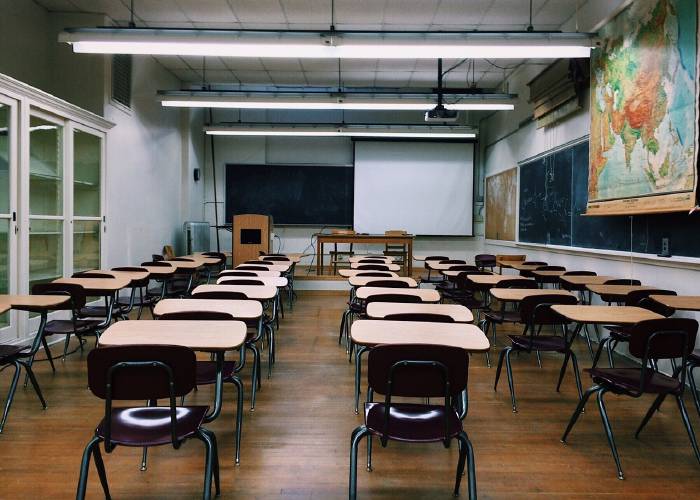
| Published: 03-26-2024 8:45 AM |
Richard Bircher lives in Lebanon.
The notion that our public school system has been, and is to remain, equated with a comprehensive social virtue, universally acknowledged and appreciated, is no longer the case. To a significant degree, public schools have been placed into the same category of a much larger and problematic national phenomenon where governmental institutions are now seen as having become politicalized and partisan, more devoted to ideological agendas rather than rational, unbiased citizen representation, and therefore not to be trusted.
Growing up, for most of us there was absolutely no choice but the public school system, of which I attended and have no complaints. Only moneyed people sent their children to private schools. On a certain level we all understood there was a difference in social status between the two, but certainly didn’t feel neglected or marginalized. Only relatively recently have school options become available for virtually all families, not just those whose families were well off, or those who felt the public schools were too unruly for their child’s makeup, and were determined to keep them out, regardless of expense.
Parents are responding quite positively. Supply can’t keep up with demand. From 2009-2020 New Hampshire public school enrollment fell by 14%, Vermont 10%. The National Alliance for Public Charter Schools enrollment grew 7% between 2019-2020 (WSJ). Catholic schools grew by 3.8%. While public schools fell by 3.5% (1.5 million) during the same period. Homeschooling, learning pods, and micro-schools are now a part of the educational mix.
What we are now witnessing is a conflict between school choice proponents and opponents who appear intent on compelling our youth to attend public schools. I’ll first claim that the primary reason for pushing the traditional public school system is the very powerful connection between the various national teachers unions and the Democratic Party. The Democratic Party has received over 94% of union political contributions (Open Secrets). Essentially, the two are one and the same.
More importantly, the public school system has long held the very distinct advantage of being the only school system available, ruling over a captive audience. Yet options are now being wrestled from the system.
Presently there are two primary philosophies attached to public school education. One where the institution is all-encompassing. I’ll call this one liberal. Allowing name and pronoun changes by students while in school without parental knowledge (Calif.); trans girls participating in girls sports; courses explaining white privilege leading to similarly motivated courses describing the prevalence of oppressors versus the oppressed; transgender affirmation; the underrepresented; the plight of LGBTQIA+ students, and racialized students; bathroom choice according to gender identification; and more.
It’s worth noting how new high-tech terminology pops up once a prior catchphrase dries up and blows away. Radicalization and education become synonymous. An attribute common to youth and zealotry without life experiences as a backdrop, yet certainly not entirely void of legitimacy. Change isn’t linear or mathematically based. Time, place, along with extraordinary events can lend one’s thinking to states of pronounced stimulation.
Article continues after...
Yesterday's Most Read Articles
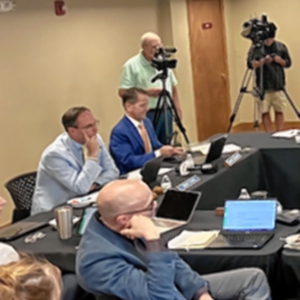 Opinion: Public school standards overhaul will impact every facet of public education in NH
Opinion: Public school standards overhaul will impact every facet of public education in NH
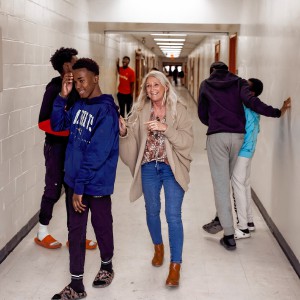 With new plan for multi-language learners, Concord School District shifts support for New American students
With new plan for multi-language learners, Concord School District shifts support for New American students
 With Concord down to one movie theater, is there a future to cinema-going?
With Concord down to one movie theater, is there a future to cinema-going?
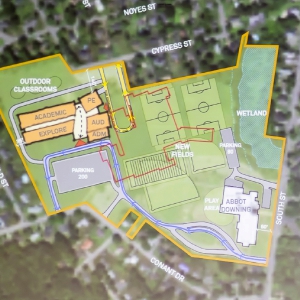 Opinion: The Concord School Board can restore trust with residents
Opinion: The Concord School Board can restore trust with residents
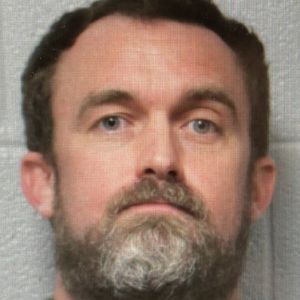 Concord man charged felony criminal mischief following vandalism outside NH GOP event
Concord man charged felony criminal mischief following vandalism outside NH GOP event
 Getaway driver in Winnipesaukee hit-and-run arrested
Getaway driver in Winnipesaukee hit-and-run arrested
The second philosophy is rather static. I’ll call this one traditional/conservative. Much aligned with a Greco-Roman, Western civilization tradition, with an emphasis on individuality, scientific rationalism, capitalism, and the rule of law. Old fashioned, and presently somewhat out of fashion, yet entirely sound in terms of success and advancement. Not only has this format created tremendous world transformation, but more consequentially, set the foundational structure allowing for change. Without all the present-day side shows and fanfare.
Surely one of the most common issues affecting schools and society overall, and its corrosive effects, is referred to as marginalization, or more specifically, power ratios between both individuals and groups. Fairness and equality have now been placed into the same category as the term “woman.” There is no longer a concise definition. Technically anyone who isn’t part of the majority (be it race, sex, religion, sexuality, etc) can take on the role of marginalized. Little proof is necessary, a loud voice and yelling mobs go a long way in declaring so-called truths.
It’s quite apparent that families everywhere want school options, and not to be automatically relegated to the public school system. Opponents of these options frequently reference the standard conservative boogeyman (Koch family, for example) as established villains seeking mind dominance over us all, especially our children. Many of us are much more inclined to place the teacher’s union hierarchy into this top most spot.
Matureness allows one to become more discerning overall, and less concerned about being led by the social/political passions of the moment. Opponents of school choice claim that these alternative schools are literally taking away money that belongs to them. All our children are public children in terms of education. How they receive funding is the crux of the issue.
Understandably, founding alternative schools is a complicated, time-intensive project with numerous issues to address. Of the 32 states that presently have some form of school choice, ten (Ariz., Ark., Fla., Ind., Iowa, NC, OK, Ohio, Utah, WV) are or will be soon opening enrollment to any child, regardless of financial means or disability status. To suggest that alternative schools are being promoted by regressive conservatives while siphoning off money that actually belongs to traditional public schools is a self-serving, selfish argument used to blame families who want the choice to opt out of a system they have come to mistrust.


 Opinion: Learning from landscapes
Opinion: Learning from landscapes Opinion: Summer camp registration: The only thing higher than the price is the anxiety
Opinion: Summer camp registration: The only thing higher than the price is the anxiety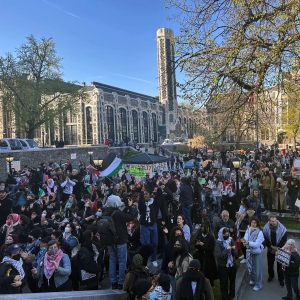 Opinion: ‘This being human is a guest house’
Opinion: ‘This being human is a guest house’ Opinion: The truth of it
Opinion: The truth of it
